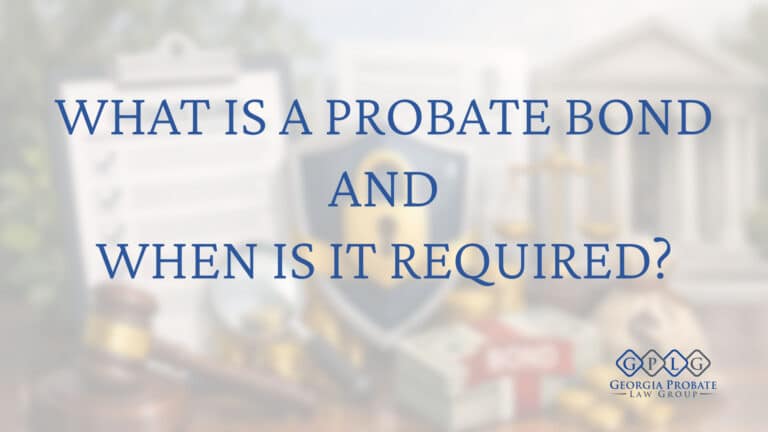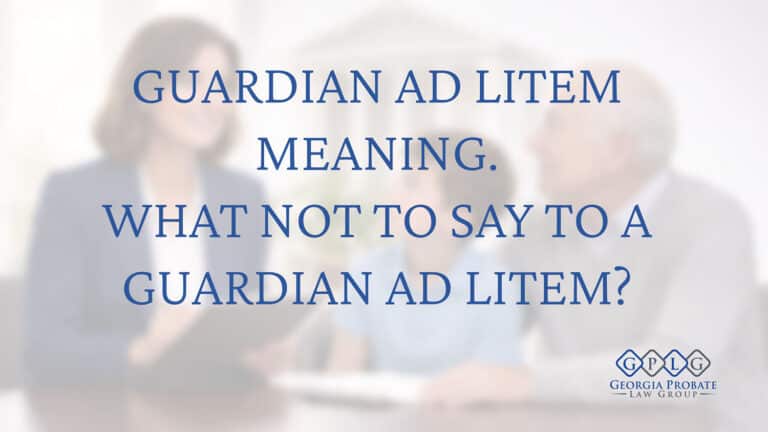Everyone knows that a life insurance policy is considered a “safe investment” and the best way to ensure that your family members are cared for after you pass away. However, for many people, the main question is, “Does life insurance go through probate?”
The good news is that a life insurance policy with a designated beneficiary is typically considered one of the non-probate assets and rarely goes through the probate process.
But what actually happens with the life insurance benefits? How do we determine if someone has such a policy, and who has the right to inquire about it? Could a life insurance policy’s death benefit go into an estate, and what happens in this case? Are the life insurance proceeds subject to taxes?
In this post, we’ll answer all these questions and more.
How to Find Out If Someone Has Life Insurance?

If you are appointed executor or administrator of an individual’s estate and need to handle the deceased affairs, you may need to find and gather all the decedent’s financial assets that might go or not through the probate to be distributed to their heirs or beneficiaries.
It is important that you have the proper authority by the court prior to gathering this sensitive information.
However, there are some specific steps you might take to find out if the late person had a life insurance policy:
Speak with their family members and close friends
People close to the decedent could have information about the life insurance policy the deceased owned, such as where the policy might be stored, if there is any intended beneficiary, if they had an insurance consultant, and if so, their name and the insurance company name.
You could also contact the deceased’s former and actual employers, as the HR Department might have a list of the employees who benefit from an insurance policy as part of their payment packet.
If the late person received any group disability benefits, you should find out if any life insurance policy was included.
Review their documents
Look into the deceased person’s belongings like bank statements for premium payments, policies, letters, or any notification from the insurance company and other important documents; search in possible storage places, such as a safe deposit box or a filing cabinet in the decedent’s house or at the bank.
Contact the insurance company
If you know the name of the insurance company that issued the policy, you might contact them directly and ask for their help to find the policy you need. They would likely require you to prove that you are entitled to request that information, such as your identity documents and the policy owner’s death certificate.
Contact the decedent’s advisors.
If you don’t know the name of the deceased’s insurance agent, you might contact their lawyer, accountant, or financial professional, who could help you with that information.
Who Has the Right to Enquire About a Life Insurance Policy?

Even after death, the insurance companies must protect the privacy of their clients. Therefore, not everyone can access information about someone’s insurance policy coverage.
Typically, the following people are entitled to ask and receive information about the life insurance policy of a deceased person:
- designated beneficiary (the individual(s) who are designated on the policy as beneficiaries).
- the appointed executor or administrator of the deceased’s estate (the person appointed to administer and oversee the distribution of the decedent’s assets).
- the trustee (if the life insurance policy was transferred by the deceased into an irrevocable trust).
Does Life Insurance Go Through Probate in Georgia?
The answer is “It depends“.
Generally, a life insurance policy with beneficiary designations is considered a non-probate asset. Upon the policy owner’s death, the life insurance payout is paid directly to the named beneficiary without going through probate court.
If the policy beneficiary passes away, cannot be located, or there is no listed life insurance beneficiary, it is considered a probate asset under Georgia law.
Unless the policy contains an exclusion, upon the beneficiary’s death, it becomes payable to the beneficiary’s estate, and life insurance goes through the probate process just like any other probate asset.
If there is a will, the executor will follow the terms of the will. If not, then the estate will be distributed by Georgia intestacy law.
Advantages of Keeping Life Insurance Outside the Estate
The key benefits of keeping the life insurance out of the estate are:
It is free of debt.
Insurance proceedings outside the estate typically are protected against creditor claims, ensuring the beneficiaries receive the full benefits without interference from outstanding obligations or debts.
Privacy.
Once the probate process starts, the proceedings become a public record and might expose family and financial matters under public scrutiny. By keeping your life insurance out of the estate, you might avoid this and give your family the necessary privacy and financial security.
Saves money.
The probate process comes with all sorts of expenses and fees, including the costs for the estate’s personal representative. Plus, extra life insurance funds might trigger tax collection if your estate value exceeds a certain amount.
Eliminates inequities that might arise when distributing your bequest.
Especially when you have a complex probate estate that includes assets that can’t be fairly distributed between your heirs, you might leave specific assets to some beneficiaries and use a life insurance policy of similar value to provide fair financial compensation to other heirs.
Provides an heir with financial needs.
Life insurance could be a great support to provide financial stability for a child or an heir with disabilities while leaving intact the other deceased’s assets. However, in this case, you should also appoint a guardian or conservator to administer financial matters to that person.
Timeless.
If the funds of your life insurance policy are designated to cover specific costs at your death, bypassing the probate proceedings usually means the funds will be released faster to the designated beneficiaries.
What Happens When Life Insurance Goes to the Estate?

Life insurance policies with beneficiary designation typically avoid probate process proceedings and go directly to beneficiaries.
If the listed beneficiary of the life insurance policy dies, can’t be located, or the policy is not up to date and has no designated beneficiary, it becomes a probate asset and goes to the insured’s estate upon the policyholder’s death unless the policy contains an exclusion.
When this happens, it might become subject to estate taxes and fees. It can also be used to pay the estate’s outstanding debts and expenses before being distributed to the late person’s heirs or beneficiaries.
If there is a will, the executor will follow the terms of the will. If not, then the estate will be distributed by Georgia intestacy law.
Can Creditors Take Life Insurance Proceeds?
According to Georgia law, “whenever any person residing in the state shall die leaving insurance on his or her life, such insurance shall inure exclusively to the benefit of the person for whose use and benefit such insurance is designated in the policy, and the proceeds thereof shall be exempt from the claims of creditors of the insured.” (2023 Code of Georgia, Title 33).
Typically, creditors cannot take life insurance proceeds. If the life insurance has a designated beneficiary, it will just go directly to the beneficiary. It does not go into the deceased person’s estate, which would be susceptible to estate creditors.
However, depending on some specific circumstances, there might be exceptions, such as when the estate is listed as a life insurance beneficiary.
If the life insurance policy names the decedent’s estate as the current beneficiary, the death benefits become part of the late person’s estate. When creditors claim against the estate to receive what they own, the life insurance proceeds may be utilized to pay the decedent’s due debts, such as medical bills, credit card balances, or loans.
Are Life Insurance Proceeds Subject to Taxes?
Life insurance policies usually release the proceeds as a lump-sum payment to the designated beneficiaries, avoiding probate.
However, when the death benefit goes to the deceased estate, it could be subject to state and federal estate taxes if the estate value surpasses the amount for tax exemptions. In Georgia, the estate tax exemption is $13.61 million.
Anyway, we recommend consulting an estate planning attorney or tax professional to help you take the best actions to limit tax liability as much as possible.
Summing Up
Are you still uncertain and want to know if life insurance goes to the estate or beneficiary in your specific situation? Due to the complexity of this subject, we recommend you hire an experienced probate attorney who could take some of the responsibilities away from your shoulders.
If you would like to learn more about probate proceedings in Georgia and when does life insurance go through probate, don’t hesitate to get in touch with our office for a consultation. We would love to help!
More information
Disclaimer These websites have not been reviewed by Georgia Probate Law Group and are not endorsed or even recommended by Georgia Probate Law Group. These websites are additional resources that you can use to further your general education on this topic.
Disclaimer: The information above is provided for general information only and should not be considered legal advice. Our probate attorneys provide legal advice to our clients after talking about the specific circumstances of the client’s situation. Our law firm cannot give you legal advice unless we understand your situation by talking with you. Please contact our law office to receive specific information about your situation.

























